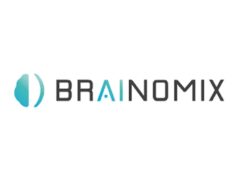 New data pointing to the possible advantages held by several drug products in treating acute ischaemic stroke were delivered at the recent International Stroke Conference (ISC; 8–10 February, Dallas, USA), including novel alternatives to conventional intravenous thrombolytics. Multiple companies also made announcements regarding key upcoming clinical trials over the course of the conference.
New data pointing to the possible advantages held by several drug products in treating acute ischaemic stroke were delivered at the recent International Stroke Conference (ISC; 8–10 February, Dallas, USA), including novel alternatives to conventional intravenous thrombolytics. Multiple companies also made announcements regarding key upcoming clinical trials over the course of the conference.
At ISC 2023, biopharmaceutical company Pharmazz presented results from its Phase 3 clinical trial evaluating sovateltide as a treatment for acute cerebral ischaemic stroke, with the drug demonstrating statistically significant and clinically meaningful improvements across multiple neurological outcomes, and being well-tolerated.
In a randomised, double-blind, parallel, placebo-controlled trial conducted across 18 centres in India, 158 adult acute ischaemic stroke patients were enrolled, and provided with either standard-of-care treatment alone (control) or standard of care plus sovateltide. The primary objective was to determine neurological outcomes based on modified Rankin Scale (mRS), National Institutes of Health Stroke Scale (NIHSS) and Barthel Index (BI) scale scores.
At 90 days, in the sovateltide group, a statistically significantly greater number of patients showed an improvement of ≥2 points on mRS, as well as a mean score reduction, and a greater number of patients demonstrated an improvement of ≥6 points on NIHSS. In addition, a numerically greater number of patients experienced an improvement of ≥40 points on BI. No drug-related adverse events were reported. Further analyses also indicated statistically significant and clinically meaningful improvements in neurological outcomes with sovateltide, regardless of whether patients did or did not receive thrombolytics.
“Results of this trial make us highly encouraged regarding the potential of sovateltide to be the first therapeutic since tPA [tissue plasminogen activator] to demonstrate a positive impact on patients suffering from acute ischaemic stroke,” said Anil Gulati, CEO and chairman of the board at Pharmazz, noting that the company has now submitted an investigational new drug (IND) application to the US Food and Drug Administration (FDA) to conduct a Phase 3 clinical trial in this space.
More new data
Biologics firm VST-Bio Corporation also presented results from a recent large animal study performed alongside Yale University (New Haven, USA), demonstrating that a single intravenous bolus of humanised anti-Syndecan 2 antibody (VST-002) led to a meaningful reduction in brain damage and improved function in an advanced model of ischaemic stroke.
The VST-002 human antibody therapy is being initially developed to treat ischaemic stroke patients who present to medical centres late i.e. after the time window in which conventional thrombolytic therapy is effective.
Federico Corti of Yale University delivered data at ISC 2023 showing that a single bolus of VST-002 resulted in a 60% reduction in stroke damage—as visualised by magnetic resonance imaging (MRI)—with all measures being statistically significant over controls. Furthermore, the treatment was safe with no observed toxicities. VST-Bio expects to initiate clinical trials of this novel therapy in 2024.
Biopharmaceutical company Basking Biosciences also presented the results of a Phase 1 safety and dose-escalation study assessing its novel von Willebrand Factor (vWF)-targeting reversible thrombolytic agent, BB-031, in healthy volunteers. BB-031 demonstrated safety and tolerability following a single intravenous dose ranging from 0.1–4.0mg/kg, and dose-dependent patterns of vWF binding and changes in platelet function.
“The results of this successful, placebo-controlled safety study of BB-031 in 40 healthy participants lay a strong foundation for planned further clinical trials in patients experiencing acute thrombotic conditions,” said Basking Biosciences CEO Richard Shea. “We are now preparing to initiate a Phase 2 clinical proof-of-concept study in patients suffering an acute ischaemic stroke, with the ultimate goal of being able to safely and effectively treat a much greater number of stroke patients than is possible today.”
Upcoming stroke trials
At ISC 2023, biotechnology company Silver Creek presented the ARPEGGIO study—a Phase 2, randomised, placebo-controlled, double-blind, multicentre clinical trial evaluating the safety and cerebroprotective capacity of scp776 in acute ischaemic stroke patients undergoing endovascular thrombectomy.
ARPEGGIO’s two-part design includes a sequential dose escalation followed by dose expansion. The trial is expected to enrol up to 100 individuals across approximately 20 stroke centres in the USA. Scp776—a “first-in-class” targeted insulin-like growth factor 1 (IGF-1) fusion protein designed to mitigate cellular damage following acute injury—was previously found to be safe and well-tolerated in healthy men and women within two Phase 1 studies.
Details of the trial design and data supporting the continued clinical advancement of scp776 featured in a poster presentation at ISC 2023. The poster further disclosed efficacy results from a recent preclinical study involving non-human primate models of acute ischaemic stroke, which demonstrated a “significant survival benefit” with greater preservation of blood-brain barrier (BBB) integrity, reduced lesion size, and functional improvements, as compared to controls.
Pharmaceutical giant Bayer also delivered new stroke findings at the conference, including a secondary analysis from the Phase 2 PACIFIC-STROKE trial in which asundexian, an oral small molecule Factor XIa inhibitor, was assessed versus placebo in patients with acute non-cardioembolic ischaemic stroke. A poster presentation reported “no evidence” of increased intracranial haemorrhage (ICH) between patients randomised to receive early anticoagulation with asundexian, as compared to placebo, in PACIFIC-STROKE, supporting the premise that early anticoagulation inhibition of Factor XIa may prevent thrombosis without increasing intracranial bleeding.
Bayer recently announced the first patient enrolments in two global, multicentre, randomised Phase 3 clinical trials of asundexian: OCEANIC-AF, which will investigate asundexian versus apixaban in patients with atrial fibrillation at risk for stroke, and OCEANIC-STROKE, which will assess the drug in patients after a non-cardioembolic ischaemic stroke or high-risk transient ischaemic attack (TIA).












